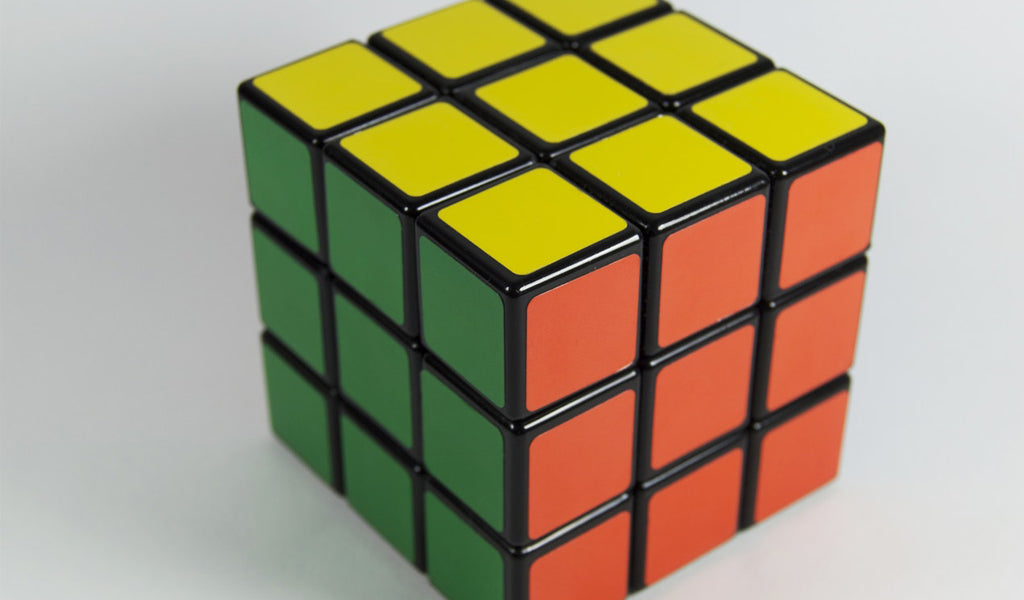
Article Detail
- Brainiac's Corner Admin
Yoga and Meditation
Awesome news for yogis: centering your chi greatly reduces stress, fights off anxiety, and can lower your risk of depression.
How does it work, exactly? GABA (gamma-aminobutyric acid) is a key neurotransmitter for stress relief. Hit a yoga class or do an hour of meditation, and you’ll increase GABA levels in your brain by 27%. In fact, one study reported that 60% of anxiety-prone participants showed improvement after 6-9 months of meditation.
Don’t have an hour? Research has shown that even 20 minutes of Hatha yoga improves participants’ speed and accuracy in memory and focus tests, helping your brain retain and use new information.
Try something new: Nervous about putting your moves on display at a studio? Take an online class from the comfort of your own home, or work with a private yoga coach.
Cooking & Baking
Whipping up a tasty meal can help develop your cognitive skills and improve your overall well-being! As you cook, you’re working on your motor skills and hand-eye coordination, and improving your problem-solving skills every time you improvise with an ingredient.
Make it a healthy meal, and you’re serving up a double-whammy: not only are you keeping your brain active, you can add some important nutrients to your diet. (One study found that people with a Mediterranean diet are 36% less likely to develop age-related memory loss and thinking difficulties!)
Try something new: Take a cooking class with your friends and family — the endorphins you’ll receive from spending time with loved ones can do wonders for reducing stress.
Music
The benefits of playing an instrument are amazing — and this goes for any age! While there’s a lot of research about music education and kids, it’s never too late to start playing. Did you know, for example, that drummers’ brains release feel-good endorphins immediately after playing? Or that playing any instrument gives your brain a full workout, since it uses both hemispheres?
Outside of the brain benefits, you’re also improving your motor control, exercising your creativity, learning about time management and perseverance, and boosting your self-esteem as your practice and perform for others.
Plus, even just listening to music can be beneficial to your health. Listening to your favorite songs can increase your brain’s production of dopamine (the “feel-good” neurotransmitter) and decrease your levels of cortisol, a stress hormone.
Try something new: If you think of yourself as tone deaf (tip: you’re probably not!), don’t give up just yet. Working with a music teacher 1-on-1 will give you the personalized attention and lesson plan you need to succeed — so take the plunge!
Awesome news for yogis: centering your chi greatly reduces stress, fights off anxiety, and can lower your risk of depression.
How does it work, exactly? GABA (gamma-aminobutyric acid) is a key neurotransmitter for stress relief. Hit a yoga class or do an hour of meditation, and you’ll increase GABA levels in your brain by 27%. In fact, one study reported that 60% of anxiety-prone participants showed improvement after 6-9 months of meditation.
Don’t have an hour? Research has shown that even 20 minutes of Hatha yoga improves participants’ speed and accuracy in memory and focus tests, helping your brain retain and use new information.
Try something new: Nervous about putting your moves on display at a studio? Take an online class from the comfort of your own home, or work with a private yoga coach.
Cooking & Baking
Whipping up a tasty meal can help develop your cognitive skills and improve your overall well-being! As you cook, you’re working on your motor skills and hand-eye coordination, and improving your problem-solving skills every time you improvise with an ingredient.
Make it a healthy meal, and you’re serving up a double-whammy: not only are you keeping your brain active, you can add some important nutrients to your diet. (One study found that people with a Mediterranean diet are 36% less likely to develop age-related memory loss and thinking difficulties!)
Try something new: Take a cooking class with your friends and family — the endorphins you’ll receive from spending time with loved ones can do wonders for reducing stress.
Music
The benefits of playing an instrument are amazing — and this goes for any age! While there’s a lot of research about music education and kids, it’s never too late to start playing. Did you know, for example, that drummers’ brains release feel-good endorphins immediately after playing? Or that playing any instrument gives your brain a full workout, since it uses both hemispheres?
Outside of the brain benefits, you’re also improving your motor control, exercising your creativity, learning about time management and perseverance, and boosting your self-esteem as your practice and perform for others.
Plus, even just listening to music can be beneficial to your health. Listening to your favorite songs can increase your brain’s production of dopamine (the “feel-good” neurotransmitter) and decrease your levels of cortisol, a stress hormone.
Try something new: If you think of yourself as tone deaf (tip: you’re probably not!), don’t give up just yet. Working with a music teacher 1-on-1 will give you the personalized attention and lesson plan you need to succeed — so take the plunge!
- Tags:
Recent articles
The Best Hobbies For Your Brain: Tips for Brainiacs Corner(Part 3)
- Brainiac's Corner Admin
CraftsDid you know that crafts like knitting and scrapbooking also benefit your brain? In a way, it’s much like meditation:...
The Best Hobbies For Your Brain: Tips for Brainiacs Corner(Part 2)
- Brainiac's Corner Admin
Yoga and MeditationAwesome news for yogis: centering your chi greatly reduces stress, fights off anxiety, and can lower your risk...
The Best Hobbies For Your Brain: Tips for Brainiacs Corner(Part 1)
- Brainiac's Corner Admin
Sports and FitnessExercise your brain while you exercise your body! Breaking a sweat can improve your ability to multitask and...

